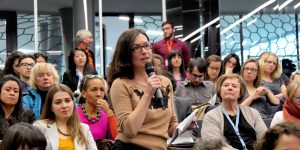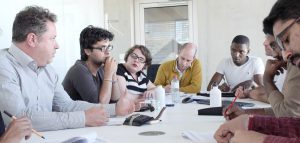
Several professors, researchers and students work on SDG 4 at the Graduate Institute. The activities range from academic courses on education, to events and research projects on skills development policies and Information Communication Technology, and academic and policy-oriented publications. The Network for International Policies and Cooperation in Education and Training (NORRAG) serves as a hub of activity on education at the Graduate Institute.


Private Sector Actors and Approaches in Education

Nation-building through compulsory schooling during the age of mass migration

Accelerating achievement of the sustainable development goals

NORRAG Becomes a Research Centre

Internal Displacement: A Key Challenge for the International Community

“Capital Markets of the World”: looking at the birth and history of modern finance through stock exchange quotations, 1850-…

Global governance and ‘technologies of expertise’

Public-private Partnerships: Challenges and Consequences for Education

DEMETER Gender, Land and the Right to Food

Innovative Financing for Education and Development: Potential, Progress and Debates

Advocacy in International Affairs Q&A
Discover more SDGs
Goal 4 aims to ensure inclusive and equitable quality education for all which, according to the UN Sustainable Development Knowledge Platform, will require “increasing efforts, especially in sub-Saharan Africa and Southern Asia and for vulnerable populations, including persons with disabilities, indigenous people, refugee children and poor children in rural areas”. The promotion of lifelong learning opportunities for all is another aspect of the goal. Read more about Goal 4